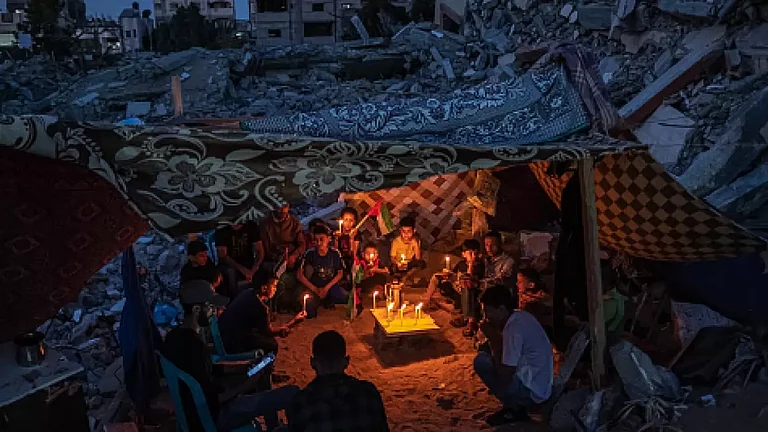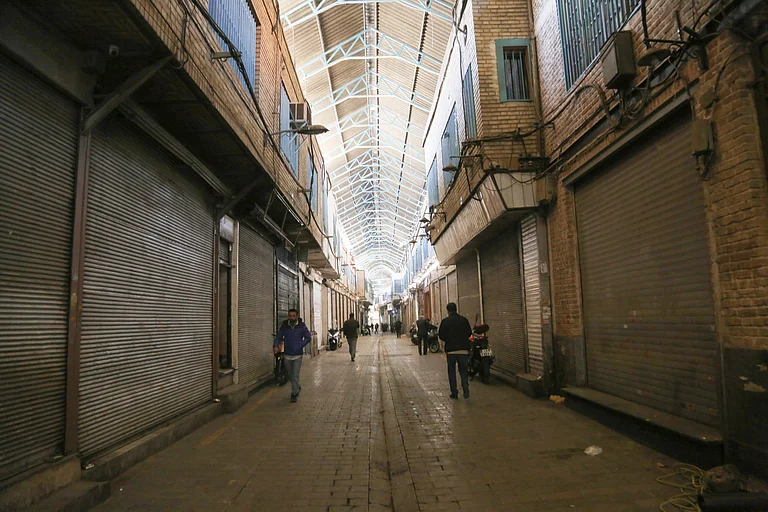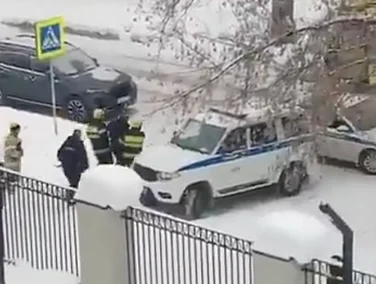US Secretary of State Antony Blinken visited fellow mediators Egypt and Qatar as he pressed ahead Tuesday with the latest diplomatic mission to secure a cease-fire in Gaza, even as Hamas and Israel signalled that challenges remain.
The militant Hamas group called the latest proposal presented to it a “reversal” of what it had agreed to, and accused the United States in a statement of acquiescing to “new conditions” from Israel. There was no immediate US response.
Israeli Prime Minister Benjamin Netanyahu, meanwhile, met with right-wing groups of families of fallen soldiers and hostages in Gaza. The groups, which oppose a cease-fire deal, said Netanyahu told them Israel will not abandon two strategic corridors in Gaza whose control by Israel has been an obstacle in the talks. Netanyahu's office did not comment on their account.
A senior US official rejected as “totally untrue” Netanyahu's alleged comments that he had told Blinken that Israel would never leave the Philadelphi and Netzarim corridors. The official spoke on condition of anonymity to discuss Blinken's private diplomatic talks.
Netanyahu's meeting with the families came as Israel's military said it recovered the bodies of six hostages taken in Hamas' October 7 attack that started the war, bringing fresh grief for many Israelis who have long pressed Netanyahu to agree to a cease-fire that would bring remaining hostages home. New protests were held Tuesday.
Blinken's meetings in Egypt, which borders Gaza, and in Qatar, which hosts some Hamas leaders in exile, come a day after he met Netanyahu and said the prime minister had accepted a US proposal to bridge gaps separating Israel and Hamas. Blinken called on Hamas to do the same. Officials did not release details of the bridging proposal.
But there appear to be wide gaps between the two sides, though angry statements often serve as pressure tactics during negotiations.
There has been added urgency to seal a deal after the recent targeted killings of militant leaders of Hamas and Hezbollah in Iran and Lebanon, both blamed on Israel, and vows of retaliation that have sparked fears of a wider regional war.
Israel's military said its forces recovered the six bodies of hostages in an overnight operation in southern Gaza, saying they were killed during a time that troops were operating in Khan Younis. Hamas says some captives have been killed in Israeli airstrikes, though returning hostages have talked about difficult conditions in captivity, including lack of food or medications.
The recovery of the remains is also a blow to Hamas, which hopes to exchange hostages for Palestinian prisoners, an Israeli withdrawal and a lasting cease-fire.
The military said it had identified the remains of Chaim Perry, 80; Yoram Metzger, 80; Avraham Munder, 79; Alexander Dancyg, 76; Nadav Popplewell, 51; and Yagev Buchshtav, 35. Metzger, Munder, Popplewell and Buchshtav had family members who were also taken hostage and were freed during a November cease-fire.
Munder's death was confirmed by Kibbutz Nir Oz, the farming community where he was among around 80 residents seized. It said he died after "months of physical and mental torture.” Israeli authorities previously determined the other five were dead. There were no reports of casualties among Israelis or Palestinians in the recovery operation.
Hamas is still believed to be holding around 110 hostages captured on October 7. Israeli authorities estimate around a third are dead.
Hamas-led militants burst through Israel's defences on October 7 and rampaged across the south, killing some 1,200 people, mostly civilians, and taking around 250 people hostage. Over 100 were released in exchange for Palestinians imprisoned in Israel during last year's cease-fire.
Israel's retaliatory offensive has killed over 40,000 Palestinians, according to Gaza's Health Ministry, which does not distinguish between civilians and combatants in its count. The air and ground offensive has caused widespread destruction and forced the vast majority of Gaza's 2.3 million residents to flee their homes, often multiple times. Aid groups fear the outbreak of diseases like polio.
An Israeli airstrike on Tuesday killed at least 12 people at a school-turned-shelter in Gaza City. The Palestinian Civil Defence, first responders operating under the Hamas-run government, said around 700 people had been sheltering at the Mustafa Hafez school. Israel's military said the strike targeted Hamas militants who had set up a command centre there.
“We don't know where to go … or where to shelter our children,” said Um Khalil Abu Agwa, a displaced woman there.
An Israeli airstrike in Deir al-Balah hit people walking down the street and seven were killed, including a woman and two children, according to an Associated Press journalist who counted the bodies. More than 20 others were wounded. Another airstrike in central Gaza killed five children and their mother, according to Al-Aqsa Martyrs Hospital, where an AP journalist counted the bodies.
Palestinians displaced by recent Israeli evacuation orders crowded into already teeming areas. One child in Deir al-Balah slept on cardboard as insects flew around his face.
“Are they going to dig the ground and dump us there, or put us on a boat and throw us in the sea? I don't know,” said one man, Abu Shady Afana.


























